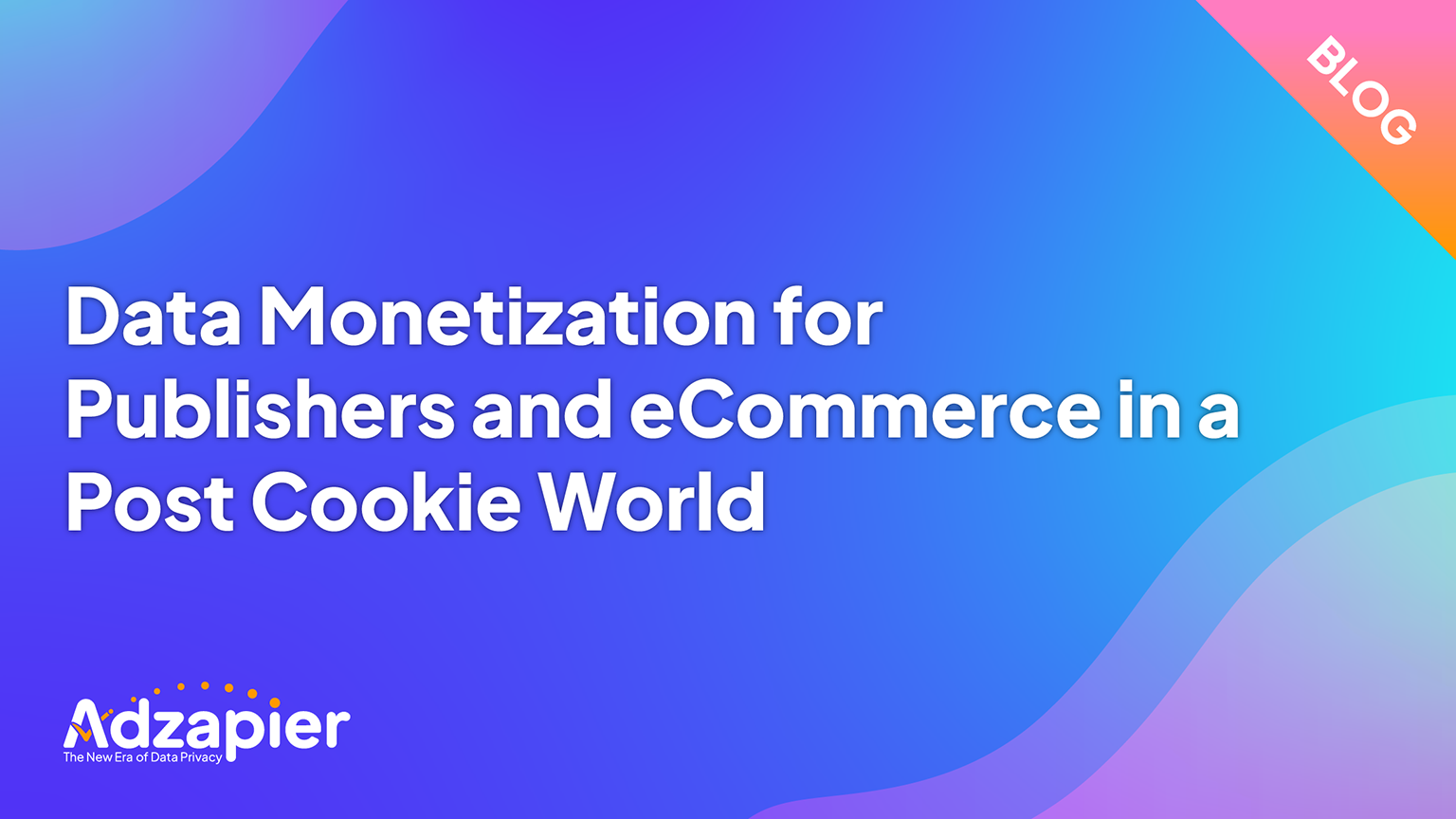
For decades, digital advertising and marketing as we know them have relied on one piece of technology: The cookie. The average tracking cookie is just a few bytes, but virtually all digital ad spend depends on it.
Cookies enable brands and publishers to focus their advertising on very specific audiences – whose browsing history demonstrates interest in similar products or services. Finding the right audience saves advertisers millions of dollars and equips them to create more relevant offers.
Because the data encoded in cookies is valuable to everyone, the exchange of cookies drives today’s e-commerce landscape. Cookies mean publishers can benefit from expressing their unique point of view by monetizing their audience data and advertisers can optimize their spending to reach qualified audiences.
There’s one problem: The cookie is about to crumble.
Google’s Turn Against Third-Party Cookies Spells the End of Digital Advertising as We Know It
Recent legislation such as the California Consumer Privacy Act (CCPA) and the EU’s GDPR has complicated the landscape for both advertisers and publishers, but fundamental change has not been necessary for most.
Now, the technological underpinnings of digital advertising will transform dramatically.
Google’s Chrome browser team has announced that future versions of Chrome will aggressively block third-party cookies. The browser is likely to incorporate a wide range of other privacy measures, going far beyond the compliance constraints put in place by recent legislation.
Today, Chrome accounts for nearly 62% of global browser share. Apple’s Safari browser, which already incorporates cookie-blocking and related technologies, holds more than 17%.
All told, nearly 80% of browser traffic will be hostile to today’s advertising technology within two years.
Data monetization strategies that the industry has taken for granted could disappear overnight.
Without cookies, even the most advanced MarTech and programmatic advertising strategies will lose their ability to laser-focus on key audiences. Publishers will find themselves challenged to monetize content and under pressure to conform to mega-platforms like Google, Amazon, Facebook, and Apple.
Successful mid-market publishers may disappear, bought up by a handful of digital media concerns. Some will shift to unstable, Web 1.0-style advertising revenue, but many small sites and communities will vanish.
Likewise, advertisers’ ability to establish cross-domain user identity must be re-engineered from the ground up. Trusted fingerprinting techniques will cease to exist, and multi-touch attribution will fail, leaving many companies unable to distinguish signal from noise in the digital world.
Publishers and e-Commerce Retailers: Are You Prepared for the Post-Cookie World?
Many publishers and retailers are already leaving money on the table with established data monetization strategies in 2020. However, there is still time to monetize authenticated audience data, such as logged-in email users, in a privacy-compliant environment that doesn’t cannibalize existing revenue streams.
Publishers and retailers both benefit from forward-looking, cookie-independent data monetization. Through first-party user relationships, publishers still have a powerful advantage in verifying user preferences, desires, and demographics—authenticated data that can push commercial efforts forward.
Only a handful of digital brands are prepared for how post-cookie technology will reshape the market. To prepare yourself and protect your interests, redouble your efforts around authenticated data: Publishers should be correlating and monetizing it and advertisers should be using it to verify their data sets.
Above all, publishers and advertisers need new tools to help them work—and profit—together. Adzapier is the answer: Flexible, nimble, forward-looking strategies that transforms first-party user activity into the authenticated data advertisers can use to build persistent post-cookie user IDs.
With Adzapier, publishers:
Add new and incremental revenue without compromising existing data monetization strategies
Monetize data invisibly in the background in a way that does not impact end-user experience
Maintain 100% privacy compliance without any additional data security safeguards on their part
Empowered by secure hashing, Adzapier collects and correlates first-party user data. Entries from the pool of authenticated data are offered to advertisers, who can use them to verify their existing user data – making their advertising and digital marketing campaigns more effective.
It is robust, scalable, seamless, and never requires third-party cookies.
Identity is the New Battleground for Digital Media – Adzapier Is Here to Help You Win
The persistent user IDs of the future will be built on first-party cookies in combination with declared first-party data. It may take months for each ID to take shape, so the time to begin is now. Adzapier helps you realize tomorrow’s data monetization strategies today.
